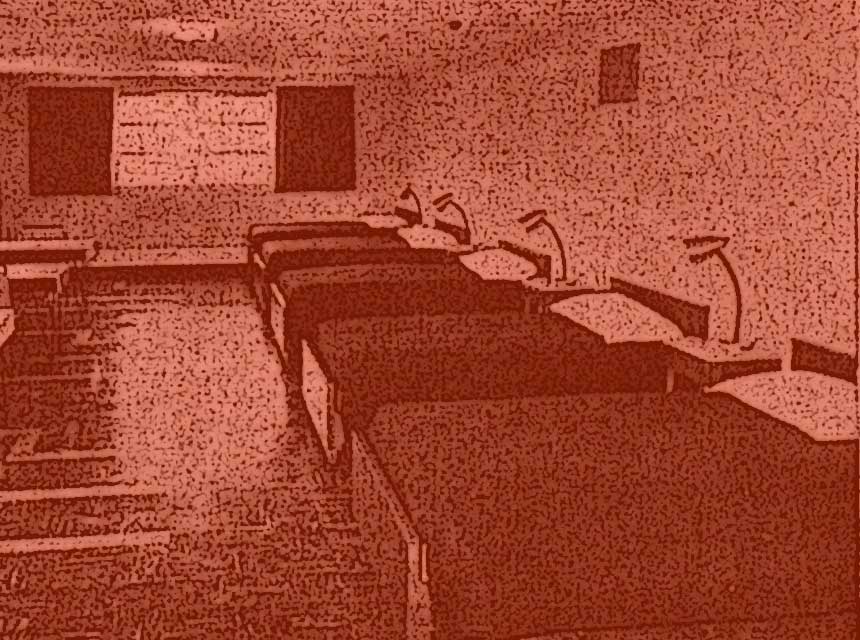
This past year has been one of seemingly unprecedented challenges for the American fire service in confronting a global pandemic crisis. While this has impacted nearly every facet of our professional and personal lives, we continue to see sudden cardiac deaths of firefighters from a constellation of contributing factors. In fact, there are increasing concerns that COVID-19 exposure adds to cardiovascular and coagulation propensities. Additionally, fire service members continue to battle occupational cancers, behavioral health threats, and metabolic syndromes.
RELATED
Addicted to Awake: Sleep Deprivation in the Fire Service
The Sleepless Heart of the Fire Service
SLEEP TO SURVIVE: HOW TO MANAGE SLEEP DEPRIVATION
As I write this, I have had the opportunity to test a biometric wearable ring called the “Oura” ring. This ring uses biometric technology imbedded in the wearable and linked to the an app on your smart phone. It measures sleep and not only sleep duration and resting heart rate but sleep quality, including total sleep time, efficiency, restfulness, REM sleep, and deep sleep duration. It provides an overall sleep quality score and readiness as well as measuring physical activity, respiratory rate, and skin temperature. I have gained a new appreciation for how I sleep and what affects it, both negatively and positively. The U.S. military has also begun researching wearable technology along these lines to determine human performance and how to enhance readiness.
We know that sufficient quality sleep is essential for both our physical and mental well-being and performance, which can be paramount when we’re expected to perform on the fireground. Sleep deprivation and poor sleep quality have been linked to high blood pressure, heart disease, memory loss, type-2 diabetes, lowered immunity, anxiety, and depression (1, 2). A chronic lack of sleep is also associated with increased production of the hunger hormone ghrelin and impaired insulin sensitivity (3, 4). This results in poor blood sugar control, weight gain, and difficulty losing weight despite dieting and exercising (5).
Knowing the health risks of poor sleep, it is essential that we teach “sleep hygiene” to enhance the quality of our restful and deep sleep to have its restorative effects. According to the Center for Disease Control and Prevention, good sleep habits (sometimes referred to as “sleep hygiene”) can help you get a good night’s sleep.
Some habits that can improve your sleep health:
- Be consistent. Go to bed at the same time each night and get up at the same time each morning, including on the weekends.
- Make sure your bedroom is quiet, dark, relaxing, and at a comfortable temperature.
- Remove electronic devices such as TVs, computers, and smart phones from the bedroom.
- Avoid large meals, caffeine, and alcohol before bedtime.
- Get some exercise. Being physically active during the day can help you fall asleep more easily at night. (6)
Knowing that sleep and rest are critical to total wellness and human performance results, it is imperative that the fire service increase awareness surrounding sleep hygiene. Additionally, providing sleep screening and assessment during annual firefighter medical evaluations also will provide early detection for sleep disorders and allow for successful intervention.
REFERENCES
- Medic, Goran et al. (2017). Short- and long-term health consequences of sleep disruption. Available at: https://www.ncbi.nlm.nih.gov/pmc/articles/PMC5449130/
- Ojio, Yasutaka et al. (2016). Sleep Duration Associated with the Lowest Risk of Depression/Anxiety in Adolescents. Available at: https://www.ncbi.nlm.nih.gov/pmc/articles/PMC4945315/
- Schmid, Hallschmid et al. (2008). A Single Night Of Sleep Deprivation Increases Ghrelin Levels and Feelings Of Hunger in Normal-weight Healthy Men. Available at: https://www.ncbi.nlm.nih.gov/pubmed/18564298
- Donga et al. (2010). A Single Night of Partial Sleep Deprivation Induces Insulin Resistance in Multiple Metabolic Pathways in Healthy Subjects. Available at: https://www.ncbi.nlm.nih.gov/pubmed/20371664
- Nedeltcheva, Arlet et al. (2010). Insufficient sleep undermines dietary efforts to reduce adiposity. Available at: https://www.ncbi.nlm.nih.gov/pmc/articles/PMC2951287/
- http://www.sleepeducation.org/essentials-in-sleep/healthy-sleep-habits
MORE
Weigh In: Firefighters and Obesity
Firefighter Testosterone May Hold Cardiovascular Clues
Thy People, Thy Apparatus: A Paradox
 Todd J. LeDuc, MS, CFO, FIFirE, retired after nearly 30 years as assistant fire chief of Broward County, Florida, an internationally accredited career metro department. He served as chief strategy officer for Life Scan Wellness Centers, a national provider of comprehensive physicals and early detection exams. He has served as a member of the International Association of Fire Chief’s Safety, Health & Survival Section for over a decade and is currently secretary of the section. He is a peer reviewer for both professional credentialing and agency accreditation. He is editor of Surviving the Fire Service (Fire Engineering Books) and serves on numerous advisory boards and publications. He can be contacted at Todd. LeDuc@lifescanwellness.com
Todd J. LeDuc, MS, CFO, FIFirE, retired after nearly 30 years as assistant fire chief of Broward County, Florida, an internationally accredited career metro department. He served as chief strategy officer for Life Scan Wellness Centers, a national provider of comprehensive physicals and early detection exams. He has served as a member of the International Association of Fire Chief’s Safety, Health & Survival Section for over a decade and is currently secretary of the section. He is a peer reviewer for both professional credentialing and agency accreditation. He is editor of Surviving the Fire Service (Fire Engineering Books) and serves on numerous advisory boards and publications. He can be contacted at Todd. LeDuc@lifescanwellness.com

